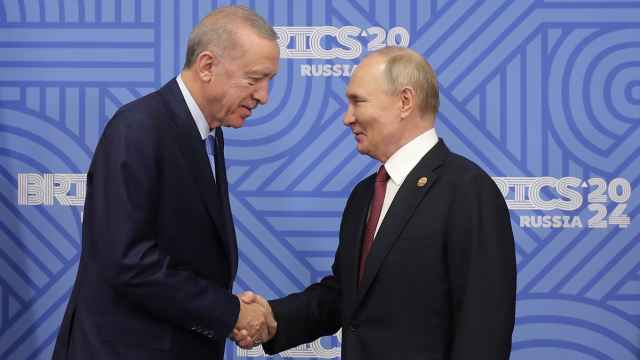Russia represents many different things to many different people. In business terms, the same is true. International investors and companies operating in the country have a range of stories to tell about boom-bust, failed market entry, roaring returns, risk-reward and sticky sectors. As the post-Soviet business landscape has evolved, so too has the sophistication of the stories.
But the issue of corporate behavior by most Russian companies continues to have a poor perception among foreigners. Governance and compliance principles may not always be dreadful across the board in Russia, but they can be erratically implemented and hugely unpredictable.
Our company sees many cases each year where poor regulatory observance, abuse of position and short-term profit-seeking lead to damaged business practices and hazardous investment cases. We frequently see cases of low disclosure, tax avoidance and inequitable treatment of shareholder rights. At the more egregious end of the scale, we see management kickbacks on tenders, licenses being bought for cash or bribes paid to officials.
Frequently, the byword for much of this is "corruption," but in many ways that only helps mask an understanding of the issues at play. Furthermore, a lot of pages in the foreign press are misguidedly given over to discussions of a corrupt political business culture driven from the center, supposedly the root cause for much corporate abuse in Russia.
In reality, much of the poor corporate behavior seems to be opportunistic and the product of what is, in essence, a very young economy that is yet to devise efficient standards and strong business ethics. Of course, poor practices cannot be excused, but the onus should be placed on the foreign investor to understand how to spot and avoid these practices as the best way to mitigate the risk. But can any external initiatives really change Russian corporate behavior, or should we instead expect domestic solutions?
The answer, of course, is both. There are some high-profile international institutions working hard to improve practices in Russia, particularly in connection with the B20, a yearly summit of business leaders from the Group of 20 nations. Recently an initiative was launched for "collective action hubs" and "centers of excellence" strategically placed in member states, notably Russia, which hosted the G20 in September. A task force against corruption was formed as part of the B20 meetings which drew a crowd of international and Russian corporate leaders to St. Petersburg for the G20 summit. They published papers on where the problems lie and what practices should be adopted. Other activities have included the Russian Compliance Alliance, organized by the Center for Business Ethics and Corporate Governance and funded by the U.S. government and international think tanks. This body is working to establish a recognized industrial standard for Russian companies to undertake compliance self-certification, a way of proving to international counter-parties and customers that they operate legally and to international norms and standards.
The driving mantra has been an official recommendation that from 2013, B20 companies and business organizations should "regularly exchange best practices in devising training for SMEs in their supply chains."
This is not a speedy process. Some large Russian companies such as Sistema and Sibur have signed up to the task force, and Moscow was designated a collective action hub. Both are worthy initiatives, but it remains to be seen whether they will result in any widespread improvement in corporate behavior, particularly beyond the capital. Meanwhile, the private sector self-certification initiative may struggle to gain traction with many local companies without Russian government support in the form of licensing.
Our experience suggests that Russian companies may only respond to outside demands for probity when those demands come directly from their own customers. What motivates these companies is that many of them have themselves recently been burned by fines from the likes of the U.S. Securities and Exchange Commission or Department of Justice that demand strict compliance from vendors and suppliers. And they are keen to avoid any repeat.
In the West, it has taken decades for some corporate practices to emerge, with improvements in behavior stemming from legislative moves following various crises — mostly from within. The U.S. Securities Acts of 1933 and 1934, including the well-known Rule 10b-5 against fraud, were responses to the 1929 crash, and the Model Business Corporation Act in the 1950s came after the war. Even then, the last few years have demonstrated the scale of problems associated with erosive deregulation and the resulting 2007-08 financial crisis — and many backward steps since then.
Ultimately, the drive for good corporate practice has to come from inside the country, through domestic legislation and by strong example, as President Vladimir Putin has referred to publicly: "We will see it through, not regardless of our people, but in the framework of the law."
Russia's own draconian anti-corruption law, which came into force Jan. 1, goes some way to doing that, albeit with limited results to date. Yet add to this the significant improvements in the financial sector infrastructure and legislation over the last couple of years in Russia — as well as the recommendations being established by local industrial groups such as the Union of Industrialists and Entrepreneurs and Delovaya Rossia — and it may be the start of something significant.
For foreign investors, meanwhile, certain areas of the Russian corporate landscape require strong local knowledge, investment caution and ultimately large doses of common sense. It is hard to account for the kind of treatment local oil giant Rosneft gave to its TNK minority shareholders early in 2013. But its subsequent about-face also demonstrates that the business environment has evolved significantly since the 1990s.
At the end of the day, Russian business is, indeed, normalizing. Whether external or domestic, foreign investors need to be supporting all such initiatives to further improve the business environment.
Alexander Teddy is a consultant at Control Risks in Moscow.
A Message from The Moscow Times:
Dear readers,
We are facing unprecedented challenges. Russia's Prosecutor General's Office has designated The Moscow Times as an "undesirable" organization, criminalizing our work and putting our staff at risk of prosecution. This follows our earlier unjust labeling as a "foreign agent."
These actions are direct attempts to silence independent journalism in Russia. The authorities claim our work "discredits the decisions of the Russian leadership." We see things differently: we strive to provide accurate, unbiased reporting on Russia.
We, the journalists of The Moscow Times, refuse to be silenced. But to continue our work, we need your help.
Your support, no matter how small, makes a world of difference. If you can, please support us monthly starting from just $2. It's quick to set up, and every contribution makes a significant impact.
By supporting The Moscow Times, you're defending open, independent journalism in the face of repression. Thank you for standing with us.
Remind me later.






